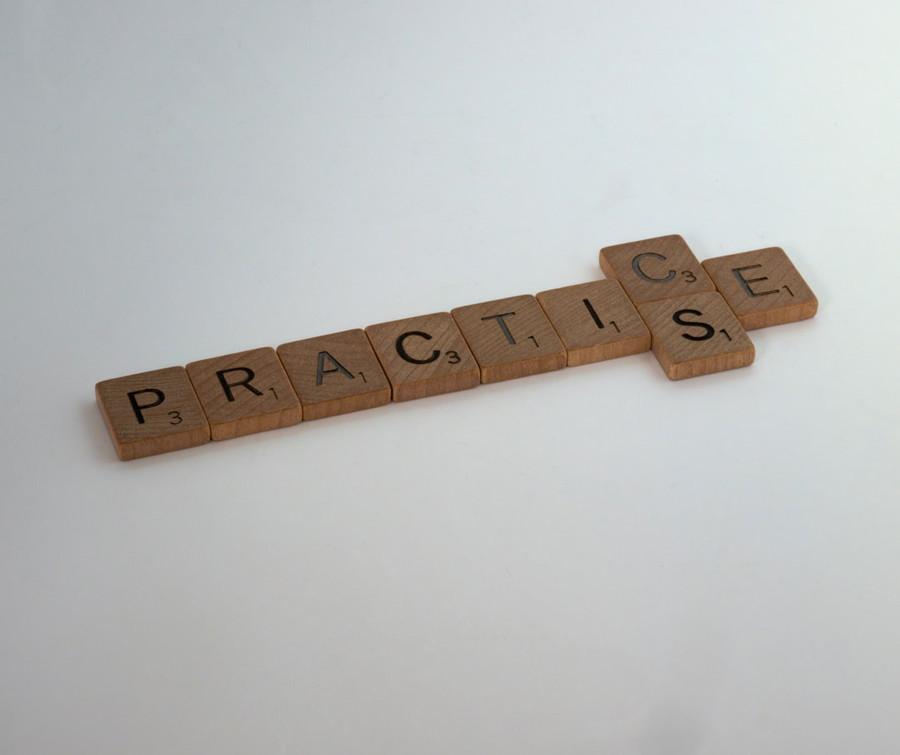Explore the World's Best Ideas
Join today and uncover 100+ curated journeys from 50+ topics. Unlock access to our mobile app with extensive features.
Usual Approach To Practice
- Start with a general idea of what we want to do
- Get instruction from teacher, coach or book
- Practice until we reach acceptable level
- Let it become automatic
- We stopped improving
18
519 reads
Purposeful Practice
- Has well-defined, specific goals
- All about putting a bunch of baby steps together to reach a longer-term goal
- Purposeful practice are focused
- Purposeful practice involve feedback
- Purposeful practice require getting out of one comfort zone
20
416 reads
Potential is an expandable vessel, shaped by various thing we do throughout our live
ANDERS ERICSSON
12
153 reads
Misconception About Practice
- People often misunderstand this because they assume that the continued driving or tennis playing or pie baking is a form of practice and that if they keep doing it they are bound to get better at it, slowly perhaps, but better nonetheless
- But when we don't get out of our comfort zone, the action will become automatic, and there will be no further improvement.
- Getting out of your comfort zone means trying to do something that you couldn’t do before
12
108 reads
Purposeful Practice In A Nutshell
Get outside your comfort zone but do it in a focused way, with clear goals, a plan for reaching those goals, and a way to monitor your progress. Oh, and figure out a way to maintain your motivation.
13
109 reads
Changes To Brain When Challenged
- Scientists know much less about how the brain changes in response to mental challenges. One major difference between the body and the brain is that the cells in the adult brain do not generally divide and form new brain cells. There are a few exceptions, such as in the hippocampus, where new neurons can grow
- Instead, the brain rewires those network by strengthening or weakening the various connections between neurons and also by adding new connections or getting rid of old ones. There can also be an increase in the amount of myelin, which allows nerve signals to travel more quickly
10
96 reads
Difference Between Traditional Practice And Deliberate Practice
The traditional approach is not designed to challenge homeostasis (comfort zone). It assumes, consciously or not, that learning is all about fulfilling your innate potential and that you can develop a particular skill or ability without getting too far out of your comfort zone
12
96 reads
Difference Between Traditional Practice And Deliberate Practice
With deliberate practice, however, the goal is not just to reach your potential but to build it, to make things possible that were not possible before. This requires challenging homeostasis—getting out of your comfort zone—and forcing your brain or your body to adapt. But once you do this, learning is no longer just a way of fulfilling some genetic destiny; it becomes a way of taking control of your destiny and shaping your potential in ways that you choose.
12
83 reads
Mental Representation
- A mental representation is a mental structure that corresponds to an object, an idea, a collection of information, or anything else, concrete or abstract, that the brain is thinking about
- A simple example is a visual image. Mention the Mona Lisa, for instance, and many people will immediately “see” an image of the painting in their minds; that image is their mental representation of the Mona Lisa.
- The key change that occurs in our adaptable brains in response to deliberate practice is the development of better mental representations, which in turn improve performance.
11
80 reads
Deliberate Practice Traits
Deliberate practice develops skills that other people have already figured out how to do and for which effective training techniques have been established. The practice regimen should be designed and overseen by a teacher or coach who is familiar with the abilities of expert performers and with how those abilities can best be developed.
11
59 reads
Deliberate practice involves well-defined, specific goals and often involves improving some aspect of the target performance; it is not aimed at some vague overall improvement. Once an overall goal has been set, a teacher or coach will develop a plan for making a series of small changes that will add up to the desired larger change. Improving some aspect of the target performance allows a performer to see that his or her performances have been improved by the training.
11
48 reads
Deliberate practice is deliberate, that is, it requires a person’s full attention and conscious actions. It isn’t enough to simply follow a teacher’s or coach’s directions. The student must concentrate on the specific goal for his or her practice activity so that adjustments can be made to control practice.
11
47 reads
Deliberate practice involves feedback and modification of efforts in response to that feedback. Early in the training process much of the feedback will come from the teacher or coach, who will monitor progress, point out problems, and offer ways to address those problems. With time and experience students must learn to monitor themselves, spot mistakes, and adjust accordingly. Such self-monitoring requires effective mental representations.
10
43 reads
Deliberate practice both produces and depends on effective mental representations. Improving performance goes hand in hand with improving mental representations; as one’s performance improves, the representations become more detailed and effective, in turn making it possible to improve even more. Mental representations make it possible to monitor how one is doing, both in practice and in actual performance. They show the right way to do something and allow one to notice when doing something wrong and to correct it.
10
36 reads
Deliberate practice nearly always involves building or modifying previously acquired skills by focusing on particular aspects of those skills and working to improve them specifically; over time this step-by-step improvement will eventually lead to expert performance. Because of the way that new skills are built on top of existing skills, it is important for teachers to provide beginners with the correct fundamental skills in order to minimize the chances that the student will have to relearn those fundamental skills later when at a more advanced level.
12
43 reads
IDEAS CURATED BY
Welcome, I post what i read Everything I post is in the book, I'll quote it if it's my own opinion
CURATOR'S NOTE
The book summarizes the findings of Ericsson's 30-year research into the general nature and acquisition of expertise.
“
Different Perspectives Curated by Others from Peak
Curious about different takes? Check out our book page to explore multiple unique summaries written by Deepstash curators:
12 ideas
Nash 's Key Ideas from Peak: Secrets from the New Science of Expertise
Anders Ericsson, Robert Pool
15 ideas
Anup Chouhan's Key Ideas from Peak
Anders Ericsson, Robert Pool
7 ideas
Talha Mumtaz ✔️'s Key Ideas from Peak
Anders Ericsson, Robert Pool
Discover Key Ideas from Books on Similar Topics
7 ideas
Smarter Faster Better
Charles Duhigg
10 ideas
Optimal
Daniel Goleman, Cary Cherniss
2 ideas
How hard should I push myself?
superorganizers.every.to
Read & Learn
20x Faster
without
deepstash
with
deepstash
with
deepstash
Personalized microlearning
—
100+ Learning Journeys
—
Access to 200,000+ ideas
—
Access to the mobile app
—
Unlimited idea saving
—
—
Unlimited history
—
—
Unlimited listening to ideas
—
—
Downloading & offline access
—
—
Supercharge your mind with one idea per day
Enter your email and spend 1 minute every day to learn something new.
I agree to receive email updates

